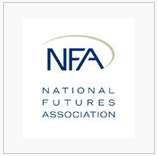Introduction to the NFA Regulation

The NFA has been introduced so that any company willing to provide derivative services to US traders, including swap dealers and signal providers, must be a member of the NFA. In addition, companies should be prepared to adhere to the rigorous standards and regulatory guidelines that the NFA dictates from time to time. Headquartered in Chicago, Illinois, NFA’s main mission is to increase investor confidence in the derivatives markets by establishing strong policies that not only protect the interests of investors, but also provide a platform for resolving issues between companies and companies Offers consumers.
Who is affected by the NFA regulation?
Membership of the NFA is required for all forex brokers, signal providers, brokerage firms, swap dealers and shareholders wishing to do business in the US. Only NFA-regulated brokers are allowed to offer brokerage services to US residents. Failure to comply with strict NFA regulations will result in high fines and subsequent legal action.
As a nonprofit organization, the NFA is funded by membership fees and other fees. This ensures that the NFA will not be taxed and the organization will be given greater credibility for the benefit of consumers. According to legislation passed by Congress in 2000 and 2008, all companies participating in the derivatives markets must be registered with the CFTC and become members of the NFA. The amendment to the regulation in 2010 also included swap traders, which cover all aspects of derivatives trading to a large extent.
Steps taken by the NFA to protect consumer rights
Although the NFA has been at the forefront of regulation since the 1980s, the NFA has only recently become more involved in protecting consumer rights by working closely with several regulatory bodies such as the CFTC, the CME Group and other SROs. The NFA, together with the CFTC, has thoroughly revised regulatory guidelines to ensure greater consumer rights. They also prevent companies from inappropriately exploiting unsuspecting customers.
Since 2011, the NFA has been actively involved in regulating the derivatives market by protecting client funds against fraud or abuse. The NFA requires all its members to review their balance sheets and reports on a daily basis to ensure that there are no discrepancies. The NFA also requires that all compliant members hold the client funds in secure separate accounts to ensure that they can be returned to their rightful owners when the parent company is liquidated or has filed a lawsuit.
Is the NFA effective at combating fraud and abuse among brokers?
The excellent quality guidelines and regulatory regulations provided by the NFA have certainly helped to effectively combat fraud and abuse. When it comes to the general security of client funds, NFA Forex brokers are known to offer better protection compared to brokers that are not properly regulated by a recognized authority. In most cases, NFA-regulated brokers are seen as helping their clients instead of working against them and withdrawing their money.
The NFA acts as a referee for most client conflicts and provides customers with a simple channel to file claims against NFA members or file complaints. Provided with sufficient evidence, all customer complaints are handled in a professional manner. In addition, since 2011, nearly all NFA Forex brokers have cooperated with NFA investigations to ensure that the integrity of client rights is protected.
Advantages and Disadvantages of the NFA Regulation
There are several advantages and disadvantages of choosing an NFA-regulated Forex broker. The NFA regulation guarantees the safety of client funds and provides a medium for arbitration or the settlement of consumer disputes. It also ensures that the broker remains honest and does not engage in fraudulent activity. Choosing an NFA-regulated company also ensures that the forex broker has gone through all of the NFA-defined screening procedures. This allows customers to search a company’s financial profile before deciding whether to use their services or not.
On the other hand, it is known that the NFA and the CFTC intervene in the freedom of traders by imposing trade restrictions in the name of protecting consumer interests. Low leverage, no hedging policies and scalping rules are all a deterrent to a trader looking to trade in the derivatives market as he sees fit. Therefore, the NFA regulation, especially for dealers in the US, is a good thing. However, it should be noted that traders should carefully analyze the trading guidelines before deciding on an NFA-regulated forex broker.
How to find brokers regulated by the NFA
In most cases, regulated brokers will provide detailed regulatory information that includes the license number and a link to their registration profile. The NFA also provides an online source where consumers can run a background review of the broker and share information. This is to ensure that the broker is actually regulated by the NFA. Regulatory details are usually displayed at the bottom of a broker’s website, the „About us“ page, or on their FAQ page. Always check the authenticity of the NFA regulations of the broker before depositing money into their account.
Die besten und vertrauenswürdigsten Forex-Broker im 2024


